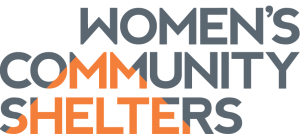PRIVACY POLICY
Your privacy is important to Women’s Community Shelters Ltd (WCS). We are committed to protecting your privacy and using any personal information responsibly and in accordance with Australian Privacy Principles and the Privacy Act 1988(Cth).
This Privacy Policy page sets out why and how we collect personal information (Information) and the ways in which we use that Information as well as what you can do if you have any questions, concerns or complaints.
What Information We Collect
The Information that we collect may include:
Personal information that you provide. This may include name, address, contact number and email address when we add you to our subscriber database which holds records for individuals, communication preferences and information about how you may have interacted with WCS. In most cases we will ask you for this information directly either through the website, email, via phone or in person.
Information about your use of our website through analytics tool. This does not collect your personal information.
It is your choice how much information you provide to us but we may not be able fulfil a request if you do not provide the Information.
Why We Collect Information
We collect the Information for the purposes of our core work – including growing our subscriber base, and engaging with the public, in particular raising awareness of domestic violence issues and fundraising.
We may ask for information to help us engage with you such as a subscription to our email newsletter and electronic mailouts and marketing, processing donations, issuing receipts, managing purchase and delivery process through our online store. For example, we will use the Information to keep you updated on events and opportunities to support WCS or to notify you of volunteering opportunities if you have nominated yourself as willing to be a volunteer.
We occasionally require external suppliers to assist us in our activities and may provide the Information to them in order to achieve these for example delivering any goods that you purchase from our online store.
When we need to send any of the Information to a third party we’ll ensure this is done securely and only for the purposes outlined above.
Why can’t women stay in their own homes, and make the perpetrator leave, so we don’t need as many shelters?
Read More
Without question, if it is sustainable, women should be supported to stay in their own homes. However there are often significant barriers to this:
- A perpetrator of domestic violence knows exactly where to find their partner and/or children, and unless a 24/7 police response can be guaranteed, they remain at risk.
- Family members of the removed perpetrator can pose a risk to a woman remaining at home
- Remaining in the home may be sustainable in the short-term, however it may be challenging for a woman to afford the rent or mortgage on the property on her own, particularly if she is the primary carer of young children or has few employable skills
- Providing government funding towards significant security upgrading may not be sustainable if the woman cannot afford to keep the property
- Many women who have experienced traumatic incidents at home cannot stay in the location due to the potential for the exacerbation of mental health conditions such as anxiety and post-traumatic stress disorder.
For the foreseeable future, there will be a growing need for safe, well run crisis accommodation for women.
Women should have a choice about options if they are homeless or leaving domestic violence.
Read More
The sector currently provides a range of options for women, including non-residential case management support, Staying Home, Leaving Violence, and other early intervention and prevention programs. However, there is simply not enough crisis accommodation to cope with the level of demand, which is increasing. The peak bodies, DV NSW and Homelessness NSW have identified that the number one issue with the Going Home Staying Home tender reforms is an insufficient focus on crisis accommodation services.
More than 50% of women requesting a crisis bed are turned away, mostly due to a lack of space, and this figure has not moved in decades. Women are making the choice to ask for a safe place to go, and do so in increasing numbers. At our Hornsby Kuring-gai Women’s Shelter, we receive 5 requests for every bed that becomes available.
Don’t NSW figures show ‘turnaways’ from services are going down?
Read More
No, they aren’t. A change in the way these numbers are measured under the Going Home, Staying Home reforms is the cause of the change. The ‘No Wrong Door’ approach to measurement pushes the responsibility on to services to find another service for a client if they can’t provide one. If they make a referral of any sort, this translates in the system as a ‘service provided’ when there is insufficient quality assurance that there is actually an outcome for a client. A ‘service provided’ does not equate to obtaining a crisis bed when you need one.
Women’s homelessness and domestic violence require a separation of service delivery.
Read More
Our shelter model accommodates women who are homeless, and women who are leaving domestic violence. Our Sanctuary and Great Lakes women’s shelters also accommodate women with dependent children. Some sector advocates believe that service provision for homelessness issues, mental health and domestic violence must be ‘quarantined’ or separated.
Our model relies on the expertise and experience of an excellent, professional Shelter Manager based on-site at each shelter, supported by a 24/7 team of case workers. We undertake a risk assessment for all residents and the Shelter Manager has the ultimate decision on who can safely be accommodated. We believe that the use of the Shelter Manager’s professional expertise, knowledge of the premises, and understanding of staff capacity is the best way to make a judgement as to which clients can be supported in a communal living environment.
Our experience has shown that there is frequent co-existence of domestic violence, mental health and homelessness issues and that in providing services, it makes no sense to ‘stream’ women according to their identified primary presenting cause. Each resident is provided with a client-centric case management approach, which may include elements of response drawn from domestic violence, homelessness, mental health and culturally specific practices.
Your model won’t work in areas of disadvantage where shelters are really needed.
Read More
We acknowledge that there are areas in NSW which have insufficient social capital to fundraise half the set-up costs and 1/3 to ½ of the operational costs of a shelter. Our shelter model works where there is a local need identified, and a willing group of people to form the Board of each shelter.
Each shelter prioritises local women, however we also connect up with Link2Home and the Domestic violence line to take referrals. Our Hornsby shelter takes around 75% of referrals from Link2Home and our Manly shelter takes around 50%. These shelters relieve pressure on the state-wide system by providing extra crisis beds in a high-demand environment.
WCS offers connections to professional development, EAP support and training for our Boards and shelter staff. We would consider an expansion of our shelter network into areas where the NSW State Government would fully fund a service under WCS management.
Online activity and social media
When you access our website or connect with us through social media, we or our third-party service providers, may use “Cookies” (small data files placed on your device that do not identify individuals personally but do identify devices). We may also use software such as Java script, or similar technology.
This allows us to:
- Remember your details and preferences when you return;
- Maintain the continuity of your browsing session
- Use analytics to collect information such as demographics and interests, visits to our websites, length of visit and pages viewed; and
- Tailor our advertising through advertising networks on other websites.
You can set your browser to notify you when you receive a Cookie and this will provide you with an opportunity to either accept or reject it in each instance. Please note that if you do this, it may affect some of the functions on our website.
We take great care to protect your personal information on our website and whenever you communicate with us. Once we receive your personal information, we take reasonable steps to protect its security.
Our website may contain links to websites of third parties. We provide these links for convenience and assistance and you should be aware that the privacy policies and information practices of these may differ from ours and you should refer to privacy policies of those websites to see how they handle your information,
You can also engage with WCS through social media, like Facebook, Twitter, Instagram, etc. You can always control how you receive content through each website’s settings. Occasionally, we may get in touch with you via social media if you aren’t a follower by using the details on your record, such as email address. If you prefer we don’t do this, send us an email.


